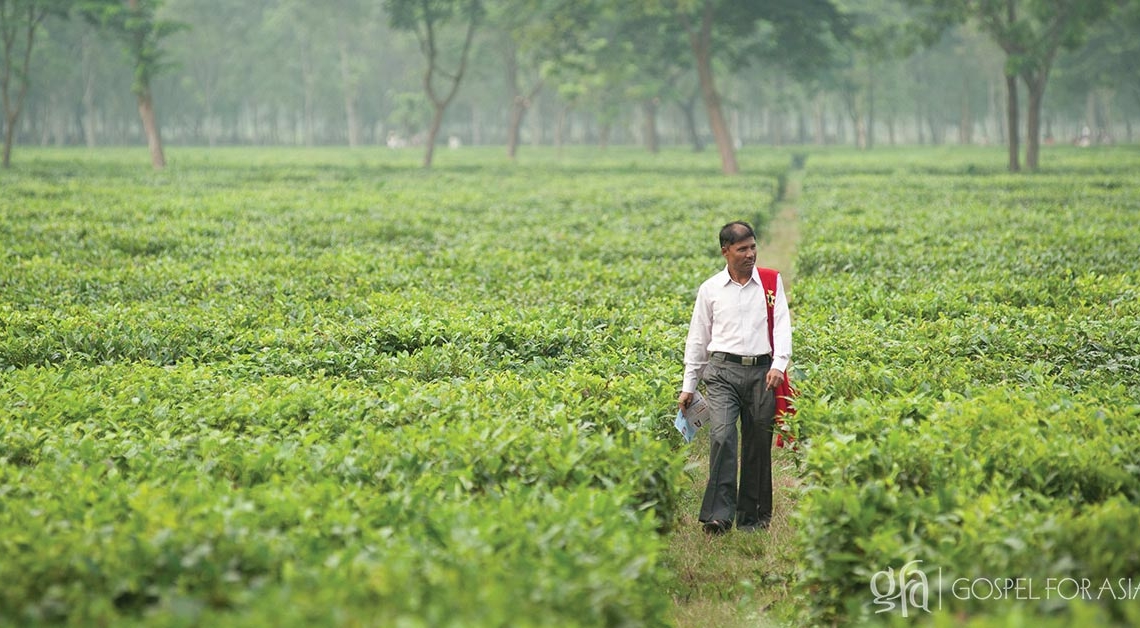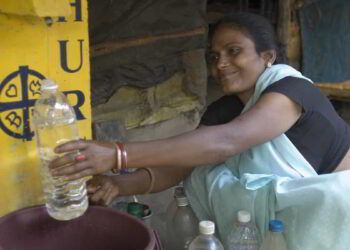“I was born and brought up in a tea estate. I am a son of a tea garden laborer, and I myself was a laborer once. Before even coming to the Lord, I have seen the struggles of the life of tea garden people.”
— Pastor Ekanpreet
Rows and rows of lush green shrubs stretch into the horizon. Women dot the scenery, plucking tea leaves and stuffing what they’ve collected into bags they carry on their heads. Some women smile, enjoying the slivers of conversation they have with each other. Others keep their focus on their job, plucking and stuffing, so their families will have enough income to make it through the day.
For as much natural beauty that surrounds the tea estate, the lives of these laborers are far from beautiful.
Parents can’t afford to buy their children clothing.
“All I can do is just tell [my children], ‘This time I am not able to buy your clothes. Maybe next coming Christmas, I will buy some dress,’” says Mudit, father of six.
Wives are sent away to find work.
“I am barely able to buy food for my children. That was one of the reasons why I had to send my wife to [the city],” says Bhavin, father of three. “As a domestic help she has gone there so she can send us some money, and at least we can maintain the family.”
People have no restroom facilities.
“We used to go out in the open in the tea garden. That is the practice here,” says Iniyavan, a tea garden laborer. “There is lots of inconvenience when you have ladies at home, when you have children at home. For them, going to the toilet in the open, it’s not very good . . .”
Fathers suddenly vanish when the burden of caring for the family becomes too much.
“I have seen . . . the father, the head of the family, all of a sudden left the home and gone elsewhere,” says Pastor Ekanpreet, a GFA-supported pastor serving in the area. “Once the man leaves the home, he never returns or nobody hears anything about that man.”











